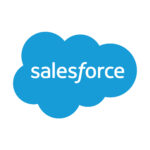 South Africans might be friendly and welcoming people socially, but we’re not always known for friendly, efficient and effective customer service in sectors ranging from government to retail.
South Africans might be friendly and welcoming people socially, but we’re not always known for friendly, efficient and effective customer service in sectors ranging from government to retail.
In fact, a study conducted three years ago across 32 countries and 10 industries by Accenture, a provider of management consulting, technology and outsourcing services, found that 76% of South African consumers had switched service providers in the previous year as a result. This caused South African companies loss of business worth a staggering US$47 billion. What they all wanted but didn’t get was quality professional service from staff at these businesses.
 “The bottom-line is no business can afford to lose so much money because of the poor service levels of its employees. But it’s not always necessarily the fault of the salesperson, desk clerk or front-end assistant,” says Darroll Harmse, founding director of EMAS Advance Performance, a firm that specialises in staff coaching and providing sustainable customer service solutions for businesses and government.
“The bottom-line is no business can afford to lose so much money because of the poor service levels of its employees. But it’s not always necessarily the fault of the salesperson, desk clerk or front-end assistant,” says Darroll Harmse, founding director of EMAS Advance Performance, a firm that specialises in staff coaching and providing sustainable customer service solutions for businesses and government.
“Many factors contribute, such as poor education, poor on-the-job training, incompatible employee selection, mismatched experience or qualifications, cultural differences, language barriers, performance gaps in management, or very importantly, lack of proper guidance, support and motivation of employees in underperforming companies,” he says.
Too many companies pay far too little attention to the vitally important ethos of good customer service and relations, says Harmse.
Through his company EMAS Advance Performance, Harmse’s clients now benefit from his years of experience gained in human behavioural movements and emotions, and client interaction models as a producer, marketer and coach of big names in film and video, and from providing staffing solutions to corporate clients in the technology and retail sectors.
Businesses can turn around these negatives in the South African business culture and create solutions to increase customer excellence for their clients, says Harmse. Typically EMAS investigates the client’s strengths and weaknesses, working with the client’s staff and management team. Through detailed root level inspections, insight is gained into the existing processes and dynamics of the client business. EMAS will analyse its customer service behaviour and interactions. This allows it to create a tailor-made solution for the client’s problem, in terms of which the client’s staff are then coached to improve customer service, leading to increased revenue.
By improving workforce efficiency and productivity, says Harmse, a business can improve its performance and streamline its processes. In a hands-on approach the client’s staff are given a better understanding of its brand, vision, mission and business ethos. Brand image solutions are an important factor of this improvement strategy.
Another key element is the sustainable solution-driven action plans that are developed to guide, support and motivate the client’s staff. The action plan and the accompanying business and staff coaching sessions helps the staff to perform better and work more efficiently. The end result is enhanced day-to-day productivity, while customers are retained, sales increase and revenue goes up.
The service tools applied by EMAS in creating customer service level solutions for clients are: Business and Staff Coaching Methods; Improvement Action Plans; Performance and Persuasion Methods; Customer Service Behaviour and Interactions; Field Observations and Reporting; and Brand Awareness and Business Image.
The key consumer requirements that businesses have to meet in order to retain and keep customers happy and coming back, include efficient customer service, friendly customer service, correct information on products or services, and customer service with a good attitude.
The poor service levels in many South African businesses, of which he became acutely aware over the years, led Harmse to see that there was a great need for the kind of services his company now provides. Now Harmse and EMAS are fast positioning themselves as a driving force in customer service levels, business performance and business ethics. They are focusing particularly on cellular, clothing and consumer goods stores in the retail sector, restaurants and fast-food chains, government departments such as traffic departments, municipalities and clinics, and banks and the financial sector.
One of its more unusual current assignments is providing their services to a local filmmaker who will start production of an online mini-series scheduled for the last quarter of 2018.
- MRF Unveils Latest MAPS® Data - 20th February 2025
- The BRC announces changes to the board and updates for 2025 - 17th December 2024
- Top 50 DSTV TV programmes – October 2024 - 12th November 2024





